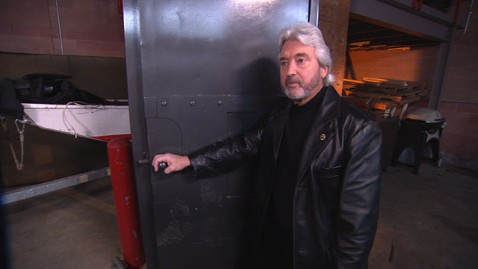6 Ways to Survive Being Taken Hostage

(ABC News)
After Jimmy Lee Dykes killed school bus driver Charles Poland Jr., abducted a 5-year-old and held him hostage for nearly a week, the young boy, Ethan, joined the all-too-short list of survivors of abduction.
Retired NYPD detective sergeant and negotiator Wallace Zeins handled approximately 150 hostage cases over his 22-year career. Zeins said he believes Dykes is a prime example of a hostage-taker who took his victim to accomplish a bigger goal.
In an interview with ABC News, Zeins said that all hostage-takers can be classified into four profiles: terrorist, prison inmate, professional criminal and emotionally disturbed person.
"Dykes fell into what we called an emotionally disturbed person," Zeins said. "He had something that he wanted the public to know. He wanted the biggest audience he could get, and he did. If he wanted to kill his hostage he would have done it in his bunker."
Zeins calls the first 10 to 30 minutes of a hostage-taking the "panic reaction." That is the time when most hostages are killed, he said.
Here are his steps to survival if you are ever taken hostage:
1. Remain calm. "Calmness is contagious, and that's because nobody else is calm in this situation," Zeins said. "Keep in mind that you have to acknowledge the hostage-taker's emotions. Avoid being someone that is proactive and aggressive. Always try to speak slowly, softly and clearly to the hostage-taker. Even the hostage negotiator cannot be judgmental; he must use soothing words."
2. Be observant and take a mental picture of everything around you. "Do the doors in the room open inward or out? Put together a description of the hostage-taker and what he's wearing. Does he have a weapon? Which hand is it in? Is he alone?"
3. Speak only when spoken to. "The hostage has no value to the criminal," Zeins said. "The hostage is only a tool to get what he wants from the authorities. You should treat the hostage-taker like royalty. Avoid being aggressive, and discard items he would consider a threat. If you speak to the police on the phone with permission, only give yes or no answers. If you are ever in a terrorist situation and have the 'wrong' passport to them, keep that hidden and don't speak about your religion."
4. Tell the hostage-taker if you need vital medications. "He doesn't want a sick hostage, and those are usually the first they release," Zeins said. "A medical condition can be enhanced by high stress, and the panic could cause the hostage-taker to take extreme action."
5. Don't try to escape or be a hero. "His bullet goes 1,200 feet a second, and you only go two feet a second. Don't try to think that you could physically take that person out. Keep in mind it's just as much in the criminal's interest as it is yours to not let a situation go violent."
6. If the police enter, hit the ground. "Stay low. [The police] are going to (shoot) for the largest body mass - from the waist up."